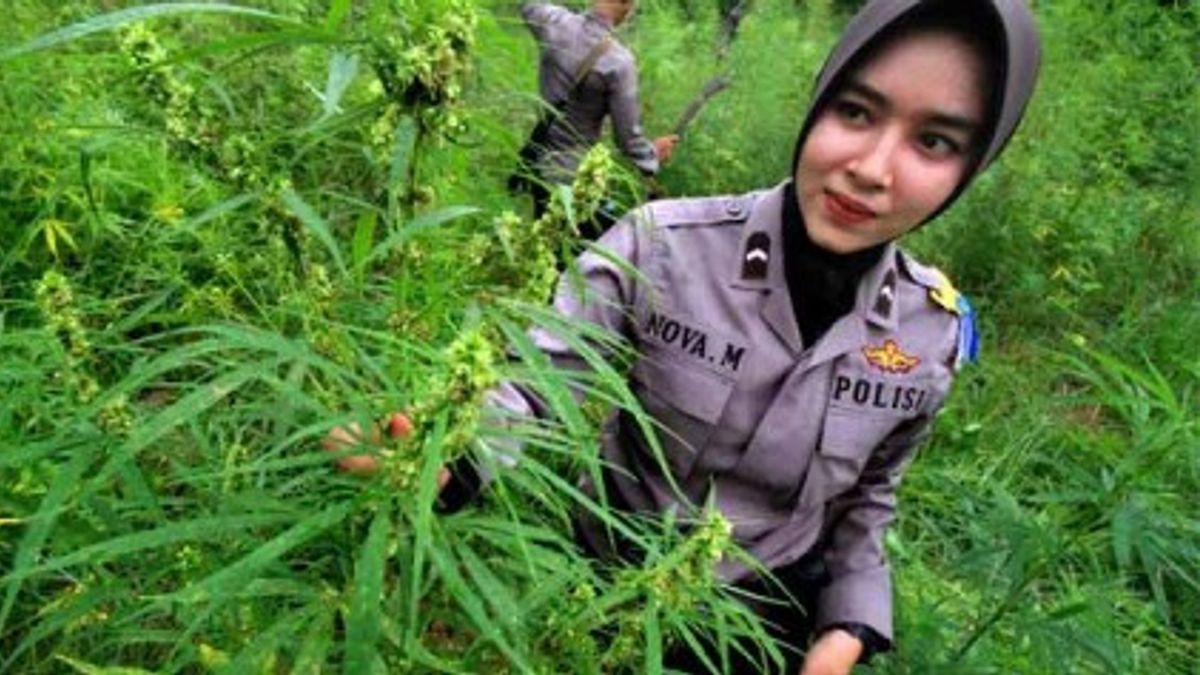JAKARTA - The National Research and Innovation Agency (BRIN) developed a satellite-based remote sensing technology that can detect and monitor the existence of marijuana fields automatically or semi-automaticly.Head of the BRIN Geoinformatics Research Center Rokhis Khomarudin said the satellite could detect the presence of marijuana fields quickly and accurately, as well as be able to monitor a large area without having to carry out time-consuming manual surveys and large costs. "The system works by developing a detection model through machine learning," he said in a statement quoted by ANTARA, Friday, May 24.Rokhis said the technology used various approaches to facilitate the identification of marijuana fields. Several methods used can identify open areas in the middle of forests that allow direct changes in objects that show plant growth phases, as well as distinguishing spectral reflections of light from cannabis plants and other plants. According to Rokhis, BRIN has had extensive experience in research and development of satellite data for various purposes, including observations of objects on land, sea, and atmosphere. This puts them in an ideal position to develop systems that can provide fast, accurate, and efficient information in terms of costs related to the existence of illegal cannabis fields. "Research and identification of cannabis fields with satellite data will be continued with a machine learning method approach and artificial intelligence," said Rokhis. "Imitting the characteristics of cannabis field objects, both from physical and spectral reflection of plants, is an important part of the research. It is hoped that this research can produce fast, accurate, and inexpensive information," he added. BRIN will continue research on the identification of cannabis fields through satellites with an artificial machine learning method approach. Characterization of cannabis field objects, both from physical and reflection of light spectral from plants, is an important part of research.
SEE ALSO:
Some time ago BRIN has established research cooperation with the North Sumatra Police (North Sumatra). This collaboration resulted in the discovery of five hectares of marijuana fields in the Tor Sihite Mountains, Mandailing Natal Regency, North Sumatra. Rokhis hopes that the cooperation between research institutions and law enforcement agencies through the use of advanced technology and solid cooperation can significantly overcome the problem of illegal marijuana fields in Indonesia.
The English, Chinese, Japanese, Arabic, and French versions are automatically generated by the AI. So there may still be inaccuracies in translating, please always see Indonesian as our main language. (system supported by DigitalSiber.id)
















